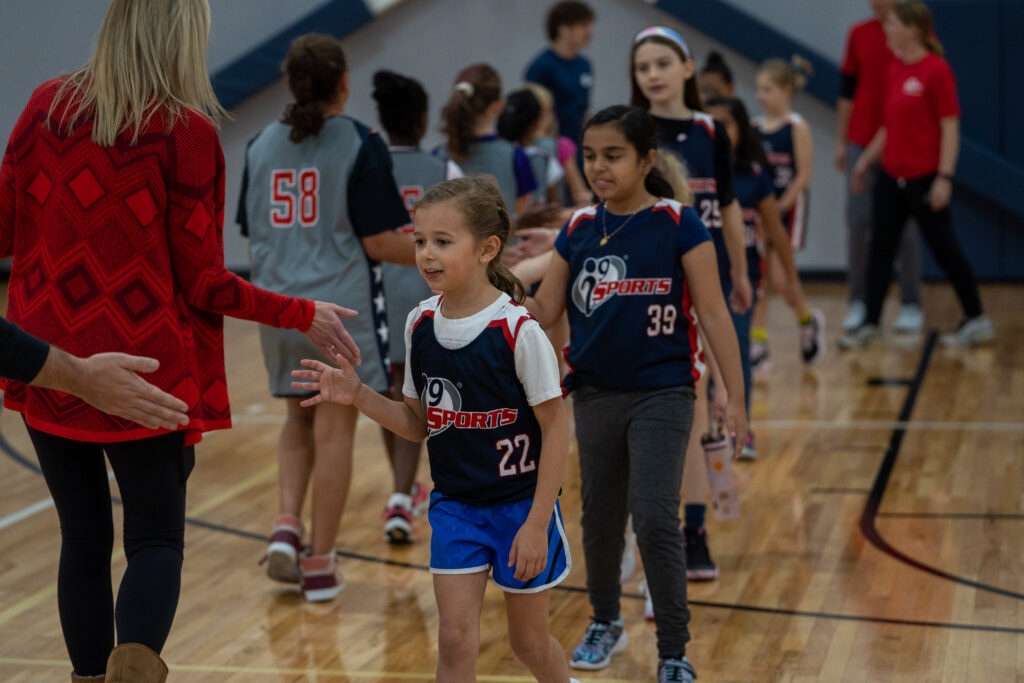3 Signs of an Exceptional Youth Sports League
As a parent, you want the best for your children – the best education, friends, and experiences. You want your children to be happy, healthy, safe, and successful. This desire tends to trickle down into youth sports. It’s important to remember that although you want the best for your kids, youth athletes are not professional athletes. In fact, less than 1% of kids will grow up to become professional athletes. For these reasons, the best youth sports experience should focus on fun and overall child development to simultaneously prepare them for the world outside of sports. Youth sports leagues and programs can help children improve their motor skills as well as their cognitive and social development. Whether it’s your first sports experience or you’re a seasoned sports parent, it’s important to evaluate your youth sports league or program to make sure it’s improving your child’s development in these three key developmental categories: cognitive, social/emotional, and gross motor skills.
Here are three signs your youth sports league is a good developmental program:
1. Age-Appropriate Instruction
Age appropriate instruction is important in youth sports leagues as this is when kids are learning to control their body movements. Children start to develop gross motor skills at around 6 months, and they begin to gain more control over these movements between the ages of 6 and 11. Gross motor skills include whole body movements such as standing, walking, running, and sitting up-right. Hand-eye coordination movements like throwing, catching, and kicking are also considered gross motor skills, and are a main focus of sports instruction.
Ensuring coaches are using age-appropriate instruction gives your child the best chance at improving these skills in a timely and safe manner. For example, if a coach focuses on teaching your 3-year-old to jump on one leg before she understands how to jump with two feet, it can discourage your child as she may not be able to grasp that concept yet. A baseball coach may be teaching your 7-year-old baseball player to dive for a grounder, but his coordination is likely not at that level yet which could even result in injuries. This poor instruction can happen at any skill level and can cause a child to not enjoy the sport, become discouraged, and ultimately lose interest. Making sure your youth sports program is teaching age appropriate skills is important in keeping your kids happy, engaged, focused, and improving!
2. Trained Coaches
This leads to our next sign of a complete youth sports league or program- a trained coach. Most youth sports leagues involve volunteer coaches. Volunteers are usually other parents on the team. It’s important to make sure these coaches are up to date on the latest coaching techniques and resources. For example, you may have a middle-aged dad who used to play baseball in his younger years coaching young girls how to play softball. Though the sports are similar, the mechanics can also be very different. Baseball players don’t need to time their swing with an underhand pitch, so the hitting mechanics are different in many cases.
Cognitive development in children can also be affected by coaching. Cognitive skills include things like problem-solving and simply following instructions. Even the smallest details can help coaches get through to younger players. For example, coaches should always try to be eye level with players in order to get their attention. With 4-year-olds, that means kneeling down on their level to talk to them. This slight variation will help younger kids pay attention and be more likely to learn and follow instructions.
i9 Sports® differs from other local sports leagues in terms of coaching. We provide our volunteer coaches with training and resources! Our volunteer coaches have access to practice plans, skills and drills, and coaching courses at their fingertips. Every official i9 Sports® volunteer coach can use our mobile app to access this information anytime, anywhere. If your league does not offer these types of resources, coaches have to spend their free time trying to find this information. We like to help volunteer coaches save their time, and make sure they’re using the most up to date information.
3. Sideline Culture
Sideline culture affects the cognitive and social/emotional category of child development. You’ve probably heard the phrase, “monkey see, monkey do.” When young children see their parents and other adults acting a certain way on the sideline, they tend to recognize and mock that behavior. When evaluating a youth sports league or program, make sure the sideline culture is a positive and supportive environment for all youth athletes. A negative environment can affect the emotional development of young children. Parents, family members, and even the best youth sports coaches can get wrapped up in wanting kids to succeed and win, but the moment support and coaching turns into negative criticism is the moment sideline warriors should stop and reevaluate their youth sports team.
Winning can be fun, but it shouldn’t be at the expense of your child’s development. The best way to keep your kids interested in sports is to make sure your child is having fun, learning, and developing the appropriate skills.
